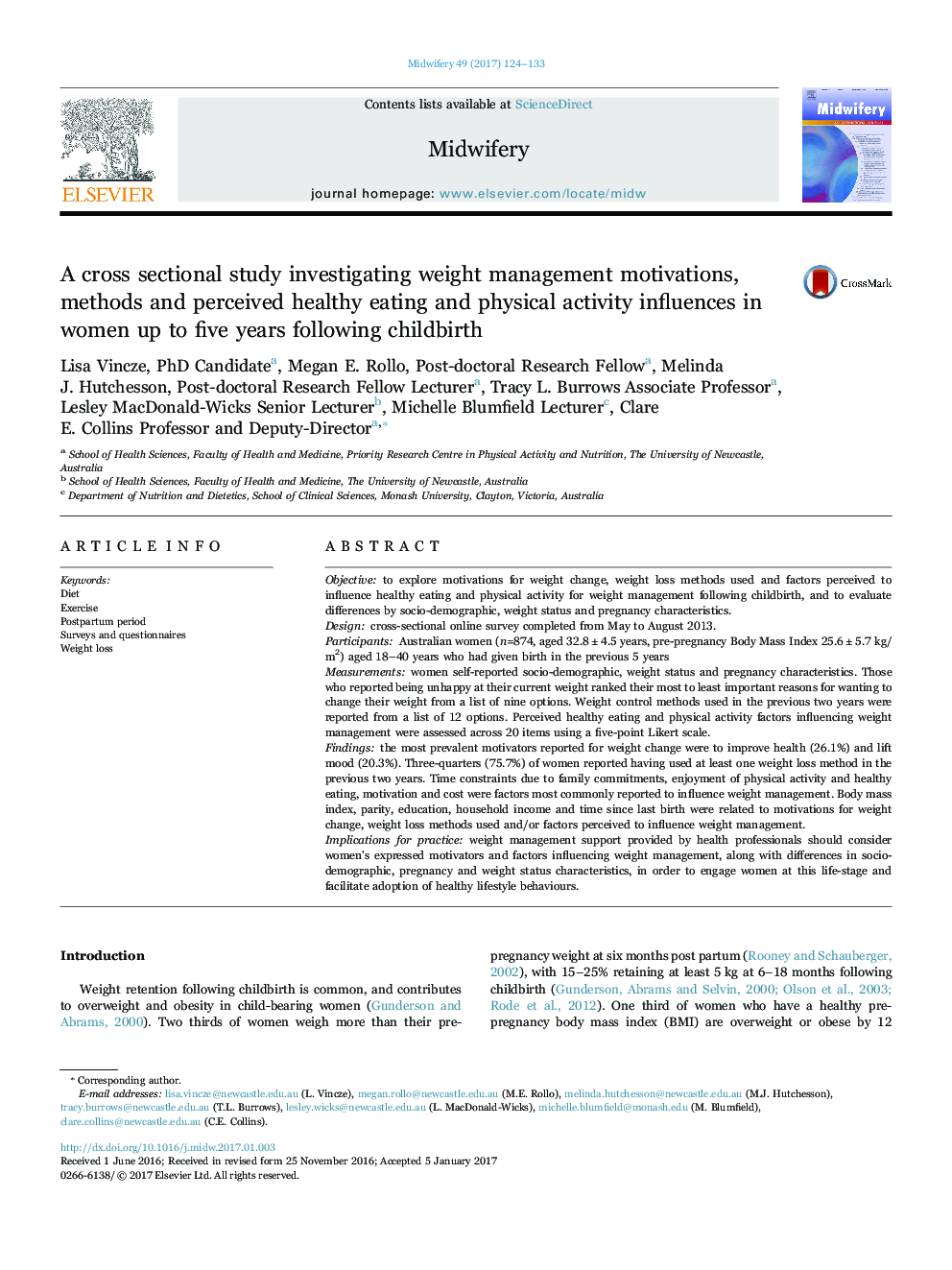| کد مقاله | کد نشریه | سال انتشار | مقاله انگلیسی | نسخه تمام متن |
|---|---|---|---|---|
| 5122228 | 1487135 | 2017 | 10 صفحه PDF | دانلود رایگان |
Objectiveto explore motivations for weight change, weight loss methods used and factors perceived to influence healthy eating and physical activity for weight management following childbirth, and to evaluate differences by socio-demographic, weight status and pregnancy characteristics.Designcross-sectional online survey completed from May to August 2013.ParticipantsAustralian women (n=874, aged 32.8±4.5 years, pre-pregnancy Body Mass Index 25.6±5.7 kg/m2) aged 18-40 years who had given birth in the previous 5 yearsMeasurementswomen self-reported socio-demographic, weight status and pregnancy characteristics. Those who reported being unhappy at their current weight ranked their most to least important reasons for wanting to change their weight from a list of nine options. Weight control methods used in the previous two years were reported from a list of 12 options. Perceived healthy eating and physical activity factors influencing weight management were assessed across 20 items using a five-point Likert scale.Findingsthe most prevalent motivators reported for weight change were to improve health (26.1%) and lift mood (20.3%). Three-quarters (75.7%) of women reported having used at least one weight loss method in the previous two years. Time constraints due to family commitments, enjoyment of physical activity and healthy eating, motivation and cost were factors most commonly reported to influence weight management. Body mass index, parity, education, household income and time since last birth were related to motivations for weight change, weight loss methods used and/or factors perceived to influence weight management.Implications for practiceweight management support provided by health professionals should consider women's expressed motivators and factors influencing weight management, along with differences in sociodemographic, pregnancy and weight status characteristics, in order to engage women at this life-stage and facilitate adoption of healthy lifestyle behaviours.
Journal: Midwifery - Volume 49, June 2017, Pages 124-133
